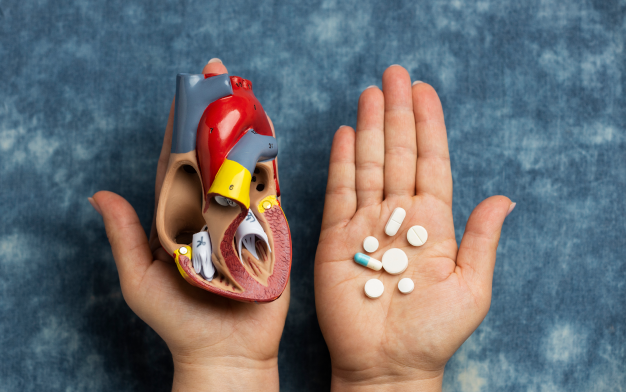Introduction
Atherosclerosis is a common but serious condition that affects the arteries of the heart and other vital organs, often leading to heart attacks and strokes. This condition develops slowly over time and is often referred to as "hardening of the arteries." In this article, we'll delve into the causes, symptoms, and effective prevention strategies to help you better understand atherosclerosis and its impact on heart health.
What Is Atherosclerosis?
Atherosclerosis is a chronic and progressive disease that occurs when fatty deposits, cholesterol, calcium, and other substances build up on the inner walls of your arteries. Over time, these deposits, called plaques, can harden, narrow the arteries, and restrict blood flow. The consequences of atherosclerosis can be life-threatening, as it's a major risk factor for heart disease and strokes.
Causes of Atherosclerosis
Understanding the causes of atherosclerosis is crucial for prevention. While the exact cause isn't completely understood, several factors are known to contribute:
- High Cholesterol:Elevated levels of low-density lipoprotein (LDL) cholesterol in the blood can lead to the formation of plaques in the arteries.
- High Blood Pressure:Uncontrolled hypertension can damage artery walls, making them more susceptible to plaque buildup.
- Smoking:Smoking is a significant risk factor, as it damages blood vessels and increases the likelihood of plaque formation.
- Diabetes: People with diabetes often have elevated blood sugar levels, which can damage the arteries and accelerate atherosclerosis.
- Obesity:Excess body weight can lead to high blood pressure, high cholesterol, and insulin resistance, all of which contribute to atherosclerosis.
- Inflammation: Chronic inflammation in the body can lead to the formation of plaques.
Symptoms of Atherosclerosis
Atherosclerosis is often a silent condition until it reaches an advanced stage. Common symptoms may include:
- Chest Pain (Angina):Reduced blood flow to the heart muscle can cause chest pain or discomfort, known as angina.
- Shortness of Breath: When the arteries supplying blood to the heart are narrowed, it can lead to shortness of breath, especially during physical activity.
- Fatigue: Reduced blood flow can result in a feeling of tiredness or fatigue.
- Weakness or Numbness: Atherosclerosis in the arteries leading to the brain can cause stroke-like symptoms, such as weakness or numbness in the limbs.
- Claudication: Atherosclerosis in the leg arteries can cause leg pain or cramping during physical activity.
Prevention of Atherosclerosis
Preventing atherosclerosis is the key to maintaining heart health. Here are some strategies:
- Healthy Diet:Adopt a diet low in saturated fats, trans fats, and cholesterol. Focus on fruits, vegetables, whole grains, and lean protein sources.
- Regular Exercise: Aim for at least 150 minutes of moderate-intensity aerobic activity per week.
- Smoking Cessation: If you smoke, quitting is one of the most significant steps you can take to prevent atherosclerosis.
- Manage Blood Pressure: Regular monitoring and management of blood pressure are crucial.
- Control Diabetes:If you have diabetes, work with your healthcare provider to keep your blood sugar levels in check.
- Medications:In some cases, your doctor may recommend medications to control cholesterol or blood pressure.
- Stress Management: Chronic stress can contribute to atherosclerosis. Find effective ways to manage stress in your life.
Conclusion
Atherosclerosis is a common and potentially life-threatening condition that affects the arteries, including those supplying the heart and brain. Understanding its causes, symptoms, and preventive measures is essential for maintaining a healthy heart. By adopting a heart-healthy lifestyle and seeking regular medical check-ups, you can reduce your risk of atherosclerosis and its associated complications. Remember that prevention is the best medicine when it comes to this silent but serious condition.
.pdf%20300X60%20PX-02-02.svg)



